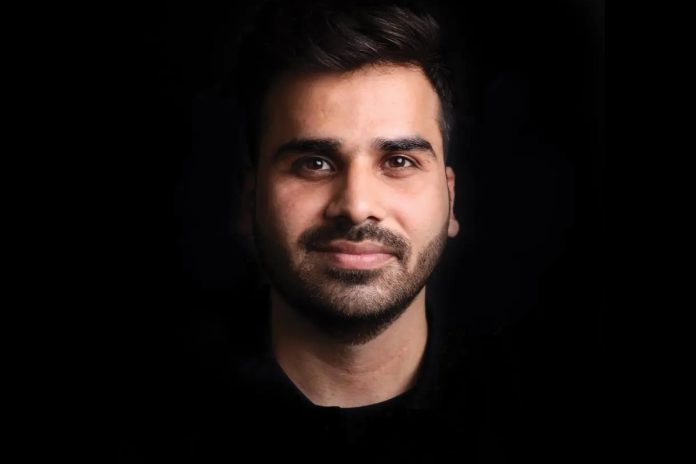Even as a new multipolar world order emerges, it brings with it uncertainties that must be navigated with sagacity and foresight
The global world order is going through strange times, with tit-for-tat tariff wars escalating at levels previously unseen. The ramifications of this are manifold, including impacting the landscape of the global economy, introducing supply chain challenges, and ultimately leaving businesses and consumers footing a higher bill. To understand the profound implications of this modern-day phenomenon, we caught up with Madhur Acharya, Global Business Head, Aqualens and VP, E-commerce at Lenskart in an eye-opening conversation. Excerpts below.
1. In today’s interconnected world, even small economic shifts can ripple across continents. How do you navigate such volatility when scaling a consumer brand across global markets?
It’s clear that volatility is no longer an exception but the expected state of affairs, as we’ve seen with events like the tensions between India and Pakistan and the US-China tariff war.
In our interconnected global economy, we must recognize that fluctuations in currency, disruptions to supply chains, and changes in consumer sentiment can quickly have widespread effects. To effectively navigate this environment, cultivating an agile and adaptive team and organization is essential.
I believe the most effective way to counter uncertainty is to have a clear understanding of our purpose – knowing precisely who we serve and why our organization exists. Before reacting to external shifts, it’s crucial to take a moment to reflect on our fundamental brand identity. A strong and well-articulated brand purpose ensures our teams remain aligned, especially when conditions change rapidly.
Before reacting to external shifts, it’s crucial to take a moment to reflect on our fundamental brand identity. A strong and well-articulated brand purpose ensures our teams remain aligned, especially when conditions change rapidly.
For instance, as we pursue global expansion, our strategy to mitigate risks includes diversifying our supply chains and decentralizing decision-making among teams that deeply understand our brand purpose. Furthermore, our significant investments in talent, culture, and technology provide us with lasting advantages that extend beyond short-term market fluctuations.
2. With Lenskart expanding in regions as diverse as Europe and Asia, how do you strike a balance between maintaining global brand consistency and adapting to local market behaviour and preferences?
Global brands achieve success by deeply resonating with local consumers. The most successful international brands often feel like they originated locally. Our experiences scaling across Asia and Europe have highlighted a key insight: while consumers globally value quality, affordability, and trust, their expressions and experiences of these values are diverse.
We maintain a set of fundamental brand principles that are non-negotiable: quality, innovation, affordability, and customer delight. Our strategy involves establishing a consistent brand purpose-what our brand fundamentally represents-and then empowering our local teams with the autonomy to adapt and implement this purpose in ways that are culturally relevant. For instance, in Thailand, leveraging LINE is more effective than focusing on Instagram. Similarly, in the Middle East, the design of our physical stores and the professionalism of our staff are particularly significant factors in building trust and connection.
Our strategy involves establishing a consistent brand purpose-what our brand fundamentally represents-and then empowering our local teams with the autonomy to adapt and implement this purpose in ways that are culturally relevant. For instance, in Thailand, leveraging LINE is more effective than focusing on Instagram.
Similarly, in the Middle East, the design of our physical stores and the professionalism of our staff are particularly significant factors in building trust and connection.
Our approach allows regional teams to tailor their execution strategies to local nuances while upholding our core brand promises. This ensures that we remain relevant in each market without diluting our overall brand identity.
3. Having built multiple high-growth D2C brands, what are the most important levers for creating a resilient, future-ready brand in uncertain economic times?
Resilience in today’s dynamic market means more than just weathering challenges; it’s about emerging stronger from them. Future-ready brands distinguish themselves through three key characteristics: learning agility, customer centricity, and a strong culture.
Learning agility is about more than speed — it’s the ability to continuously evolve based on shifting consumer expectations. At Lenskart, we’ve reimagined how convenience can be delivered, whether it’s by accelerating delivery timelines or rethinking distribution models. For example, we’ve innovated the consumer experience by making vision products available on platforms where immediacy matters — redefining what fast, accessible eyewear means today.
Customer centricity is paramount in an environment where consumers are both discerning and value-driven. Brands that consistently listen, adapt, and deliver not just products but experiences, build long-term trust. At Lenskart, we keep the customer at the center by offering thousands of eyewear styles and launching multiple new collections every month — because we recognize that personal style and choice are non-negotiables for today’s consumer.
A strong organizational culture serves as a crucial anchor in times of uncertainty. When your teams are empowered, aligned with a clear purpose, and deeply engaged, they become your most valuable asset in navigating challenges. We are fortunate to work with strong teams at Lenskart who have a clear understanding of their goals and are committed to achieving them.
Ultimately, uncertainty is an inherent part of the business landscape. The key to success lies not in attempting to predict every challenge but in building a resilient organization that is global-forward and is capable of navigating any storm.


